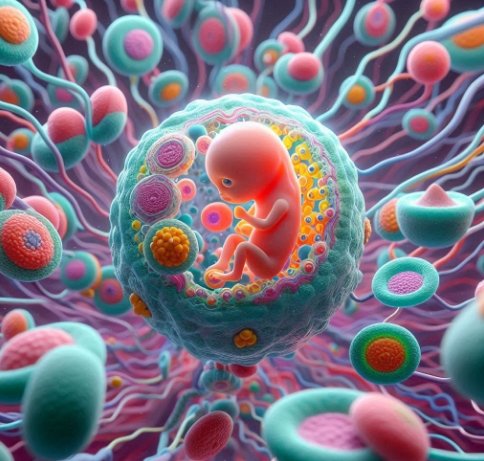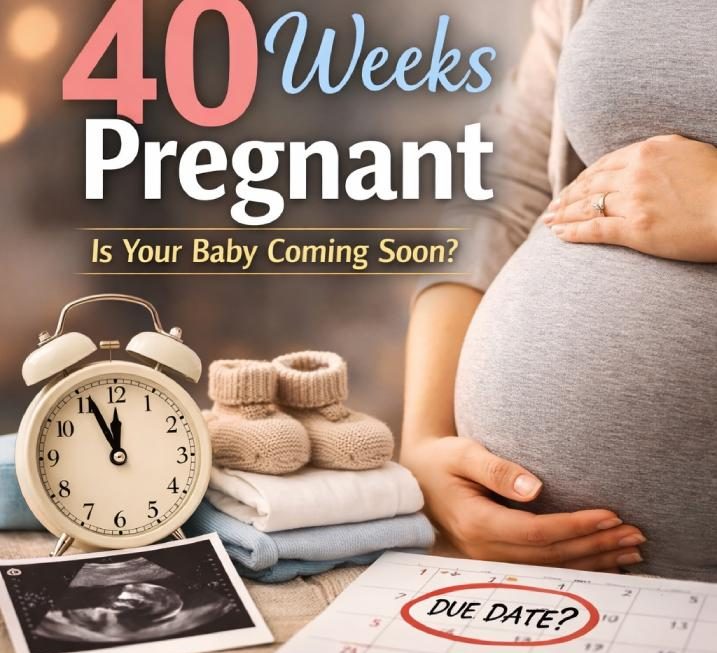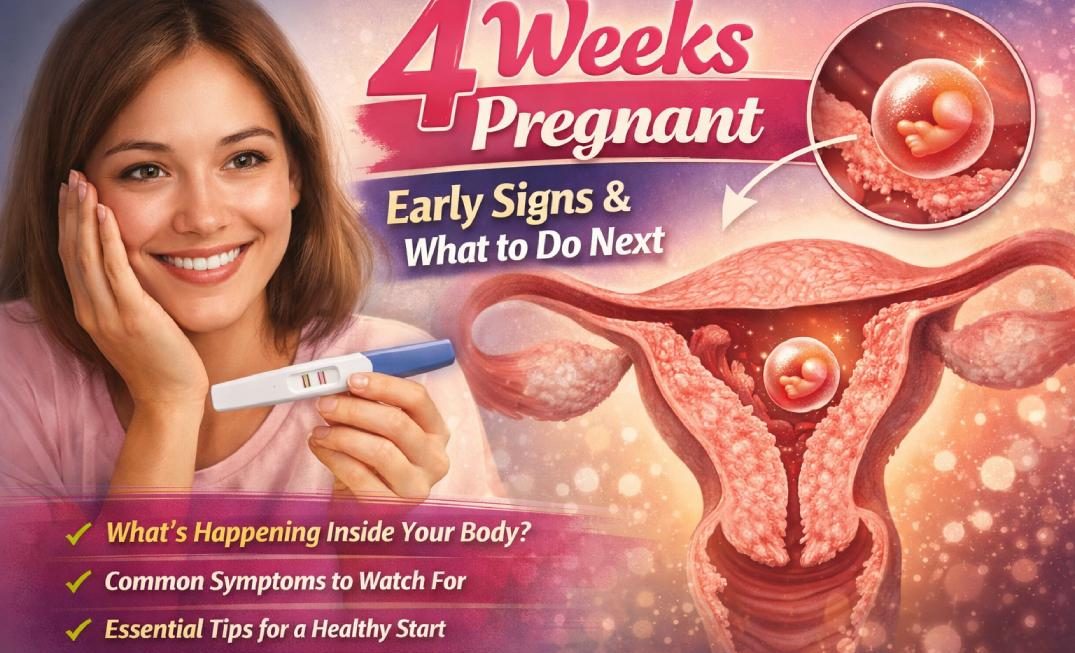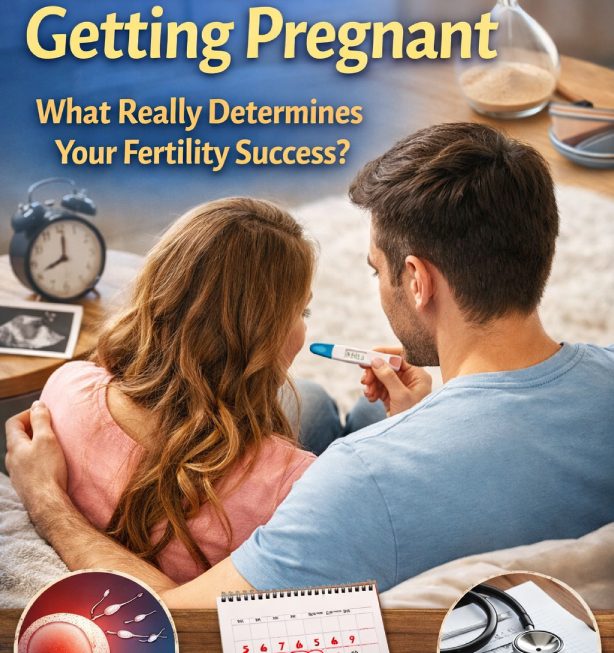The question of whether you can get pregnant after your period is one that many women ponder. The answer, while seemingly straightforward, is layered with nuances about the female reproductive system and the timing of ovulation. Understanding your menstrual cycle is crucial for both pregnancy planning and contraception. This article will explore the science behind your cycle, and the probability of conception at different stages, and provide clarity on a topic that often leaves many women with more questions than answers.
The Menstrual Cycle: A Brief Overview
Before diving into the specifics of post-period pregnancy, it’s essential to have a clear understanding of the menstrual cycle. The menstrual cycle is divided into several phases: menstrual, follicular, ovulation, and luteal. Each phase plays a vital role in a woman’s reproductive health.
Menstrual Phase
The menstrual phase begins on the first day of your period and typically lasts between 3 to 7 days. During this phase, the uterine lining sheds, resulting in menstrual bleeding.
Follicular Phase
Following the menstrual phase, the follicular phase begins. This phase starts on the first day of your period but continues until ovulation. Hormones stimulate the ovaries to produce follicles, and one follicle will mature into an egg.
Ovulation
Ovulation occurs mid-cycle, usually around day 14 in a 28-day cycle. The mature egg is released from the ovary and travels down the fallopian tube. This is the prime time for conception, as the egg is viable for about 24 hours.
Luteal Phase
After ovulation, the luteal phase begins. This phase lasts approximately 14 days, leading up to the next menstrual period. If fertilization does not occur, the uterine lining will shed, and a new cycle will begin.
Can You Get Pregnant Right After Your Period?
The short answer is yes, it’s possible to get pregnant right after your period, although the likelihood varies. Let’s break down why this is the case and explore the factors that contribute to this possibility.
Understanding Your Fertility Window
The fertility window is the time during your cycle when you’re most likely to conceive. It encompasses the days leading up to and including ovulation. Sperm can live inside the female reproductive tract for up to five days, so if you have sex towards the end of your period and ovulate shortly after, pregnancy can occur.
Early Ovulation
One of the primary reasons pregnancy can happen soon after your period is early ovulation. Not all women ovulate on day 14. Some may ovulate much earlier, especially those with shorter cycles. If you have a 21-day cycle, for instance, ovulation could occur around day 7, making conception soon after your period quite possible.
Sperm Lifespan
Sperm can survive in the female body for up to five days. Therefore, if you have sex towards the end of your period and ovulate shortly after, the sperm could still be viable and fertilize the egg.
Irregular Cycles
For women with irregular menstrual cycles, predicting ovulation can be challenging. Irregular cycles can lead to ovulation at unpredictable times, increasing the chances of conceiving after your period.
Tracking Ovulation
Tracking ovulation can help you better understand your fertility window. Methods include:
- Basal Body Temperature (BBT) Charting: Tracking your basal body temperature daily can indicate when ovulation has occurred, as there is a slight increase in temperature post-ovulation.
- Ovulation Predictor Kits (OPKs): These kits detect the surge in luteinizing hormone (LH) that precedes ovulation.
- Cervical Mucus Monitoring: Changes in cervical mucus can signal approaching ovulation. Around ovulation, cervical mucus becomes clear and stretchy, similar to egg whites.
Factors Affecting Fertility
Several factors can influence your ability to conceive after your period. Understanding these can help you gauge the likelihood of pregnancy.
Age
A woman’s age significantly impacts fertility. Women in their 20s have a higher chance of conceiving, while fertility gradually declines after age 35.
Health and Lifestyle
General health and lifestyle choices also play a crucial role. Factors such as maintaining a healthy weight, eating a balanced diet, exercising regularly, avoiding smoking and excessive alcohol consumption, and managing stress can all affect fertility.
Medical Conditions
Certain medical conditions can impact fertility. Conditions such as polycystic ovary syndrome (PCOS), endometriosis, and thyroid disorders can affect ovulation and overall reproductive health.
Myths and Misconceptions
Many myths surround the topic of conception and fertility. Here are a few common misconceptions debunked:
Myth 1: You Can’t Get Pregnant During Your Period
While it’s less likely to conceive during your period, it’s not impossible. Sperm can live up to five days, and if you have a short cycle, ovulation could occur soon after your period ends.
Myth 2: Regular Cycles Mean Regular Ovulation
Even if you have regular cycles, ovulation can still vary. Stress, illness, and lifestyle changes can all impact the timing of ovulation.
Myth 3: You Can’t Get Pregnant if You Don’t Ovulate
Ovulation is indeed necessary for pregnancy, but ovulation can sometimes occur without obvious signs. Using methods like BBT charting or OPKs can help you determine if and when you ovulate.
FAQs About Getting Pregnant After Your Period
1. How Soon After My Period Can I Get Pregnant?
You can get pregnant almost immediately after your period if you have a short cycle and ovulate early. Since sperm can live for up to five days, having sex towards the end of your period can result in pregnancy if ovulation occurs shortly after.
2. Is It Safe to Rely on My Cycle for Birth Control?
Relying solely on cycle tracking for birth control, also known as the rhythm method, is not highly reliable due to the variability in ovulation. Using additional contraceptive methods is recommended for better protection against unintended pregnancy.
3. Can Stress Affect My Chances of Getting Pregnant?
Yes, stress can impact your menstrual cycle and ovulation, potentially making it harder to predict your fertility window. Managing stress through relaxation techniques, exercise, and healthy lifestyle choices can improve your chances of conceiving.
4. How Can I Track My Ovulation More Accurately?
To track ovulation more accurately, you can use a combination of methods such as BBT charting, OPKs, and monitoring cervical mucus changes. Consulting with a healthcare provider can also provide additional guidance and tools for tracking ovulation.
5. Does Having Sex Every Day Increase My Chances of Getting Pregnant?
Having sex every day during your fertile window can increase your chances of conceiving, but it isn’t necessary. Sperm can survive for several days, so having sex every other day during your fertile window can be just as effective.

In conclusion, understanding your menstrual cycle and fertility window is key to knowing when you can get pregnant. While it is possible to conceive shortly after your period, several factors influence this likelihood, including cycle length, ovulation timing, and sperm lifespan. By tracking ovulation and being mindful of your body’s signals, you can better plan for pregnancy or avoid it, depending on your goals.
Arming yourself with accurate information and debunking common myths can empower you to make informed decisions about your reproductive health. Whether you’re trying to conceive or seeking effective birth control, understanding your cycle is the first step toward achieving your goals.


